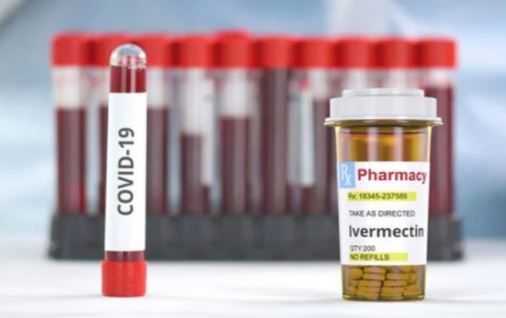
NOTE: This post is for information purpose and should not be regarded as a medical prescription. You alone are responsible for any action you may undertake from reading this post.
——————————————————————————————-
According to the federal government’s NIH (National Institutes of Health), ivermectin is a Food and Drug Administration (FDA)-approved antiparasitic drug that is widely used to treat several tropical diseases, including onchocerciasis, helminthiases, and scabies; it is also being evaluated for its potential to reduce the rate of malaria transmission by killing mosquitoes that feed on treated humans and livestock.
Although (1) ivermectin has been shown to inhibit the replication of SARS-CoV-2 in cell cultures, and (2) some clinical trials and observational cohorts have found ivermectin to be effective in preventing and treating the COVID-19 coronavirus (data from some of these studies can be found in Table 2c, the FDA has not approved ivermectin for the treatment of any viral infection, claiming “there is insufficient evidence for the COVID-19 Treatment Guidelines Panel to recommend either for or against the use of ivermectin for the treatment of COVID-19.” (Source: NIH)
However, independent scientists and physicians disagree with the NIH:
- As early as December 2020, Paul Marik, MD, a professor and chief of the division of pulmonary and critical care medicine at Eastern Virginia Medical School, said that studies indicate ivermectin to have “demonstrated efficacy” in preventing COVID-19 infection prior to and after exposure to the coronavirus, and that the drug has been shown to effectively treat the virus in the early symptomatic stages and among patients hospitalized with COVID-19. Dr. Marik called ivermectin “remarkable” and “a gift to us”–“a safe drug that is exceedingly cheap.”
- A study by a team of scientists found a 5-day course of ivermectin to be safe and effective in treating adult patients with mild COVID-19. Their study is published in the February 2021 issue of the peer-reviewed International Journal of Infectious Diseases (here).
- An even more recent study of bibliographic databases up to April 25, 2021, published in the July-August 2021 issue of the peer-reviewed American Journal of Therapeutics (here), concluded that:
Moderate-certainty evidence finds that large reductions in COVID-19 deaths are possible using ivermectin. Using ivermectin early in the clinical course may reduce numbers progressing to severe disease. The apparent safety and low cost suggest that ivermectin is likely to have a significant impact on the SARS-CoV-2 pandemic globally…. Health professionals should strongly consider its use, in both treatment and prophylaxis [prevention].
There are also many anecdotal accounts, both online and from my contacts, of the effectiveness of ivermectin for the treatment of early onset COVID-19.
Amazon.com requires that you have a doctor’s prescription in order to purchase ivermectin. But there is a website that doesn’t (click here).
Business Insider warns that “While smaller doses of the medication [ivermectin] can be tolerated by humans, with few side effects…, taking a dose of ivermectin intended for an animal the size of a compact car [like a horse] can poison you. According to the Missouri Poison Center, serious overdoses of ivermectin can result in seizures, coma, lung issues, and heart problems.”
In studies of ivermectin given to patients with COVID-19, here’s the protocol or plan (Healio):
In the protocol, those at high risk for COVID-19 infection receive ivermectin at 0.2 mg/kg on day 1 and day 3, and weekly for 4 weeks…. For early outpatients with COVID-19, the protocol calls for one dose of ivermectin at 0.2 mg/kg at day 1 and day 3….
Update (January 28, 2022): The recommended dosage above is way too complicated. I searched online and found a simpler prescription: 12 mg of ivermectin a day for 5 days.
NOTE: This post is for information purpose and should not be regarded as a medical prescription. You alone are responsible for any action you may undertake from reading this post.
~E
